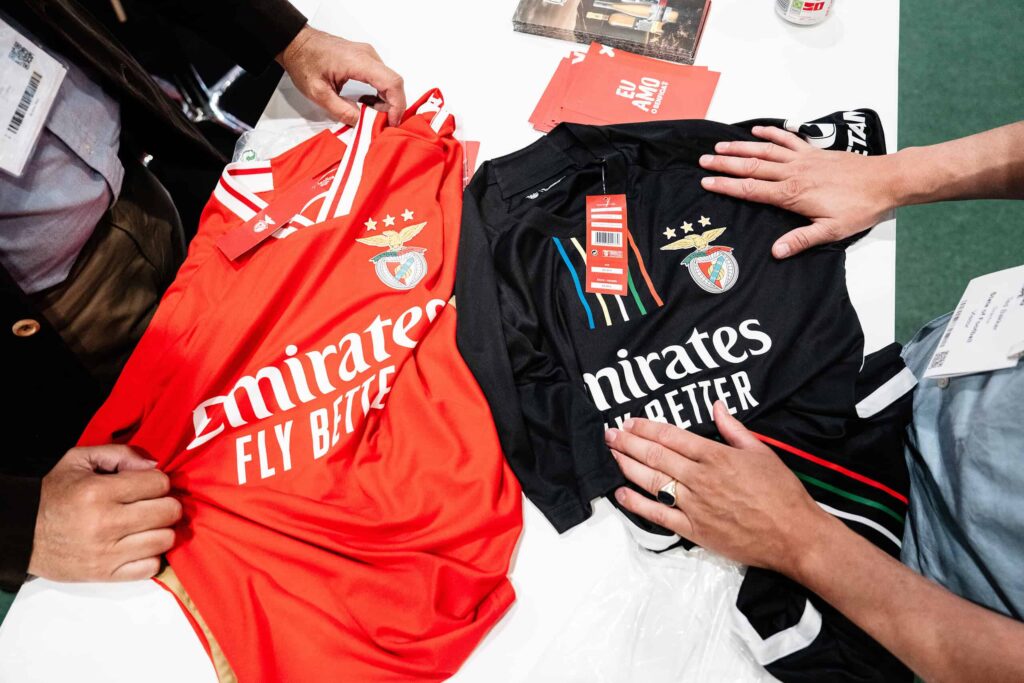The global brand licensing industry has reached unprecedented heights, with the licensing industry reaching $369.6 billion in 2024. As we move through 2025, the sector continues to evolve at breakneck speed, driven by technological innovation, changing consumer behaviors, and the emergence of new market opportunities that are fundamentally reshaping how brands extend their reach and create meaningful connections with audiences worldwide.
The Digital Revolution: From Physical to Virtual Licensing
One of the most significant transformations occurring in brand licensing today is the shift toward digital and virtual product categories. The rise of digital platforms, the metaverse, and advancements in artificial intelligence are profoundly changing the licensing landscape, with brands increasingly exploring virtual goods, NFTs, virtual reality, and augmented reality.
This digital transformation isn’t just about creating new product categories—it’s fundamentally changing how consumers interact with licensed products. Virtual goods in gaming environments, augmented reality experiences in retail spaces, and NFT collectibles are creating entirely new revenue streams for brand owners while offering consumers more immersive and personalized experiences.
The gaming industry, in particular, has become a powerhouse for licensing opportunities. Major gaming franchises are no longer just entertainment properties; they’re lifestyle brands that extend into fashion, collectibles, and even automotive partnerships. The collaboration between virtual worlds and physical products is creating hybrid licensing models that didn’t exist even five years ago.
Regional Growth Patterns: Emerging Markets Lead the Charge
While the licensing industry shows strong global growth, certain regions are significantly outpacing the market average. South Asia/PAC (+6.8%), ME/Africa (+6%), Eastern Europe (+5.9%), and LATAM (+4.4%) all reported above market average growth rates in 2024.
This geographic shift represents more than just market expansion—it signals a fundamental change in global consumer preferences and spending power. Emerging markets are not simply adopting Western licensing models; they’re creating unique approaches to brand partnerships that reflect local culture and consumer behaviors.
In Asia-Pacific, for instance, the anime and manga licensing sectors have exploded beyond their traditional boundaries, influencing fashion, automotive design, and even fine dining experiences. Meanwhile, Latin American markets are showing particular strength in sports licensing, driven by passionate fan bases and increasing disposable income among younger demographics.
Entertainment and Character Licensing: The $147.6 Billion Powerhouse
The entertainment and character segment remains the dominant force in licensing, growing 6.9% to reach $147.6 billion in revenue, with anime, video games, and social media accounting for 38% of the licensed revenues in 2023. This growth reflects a broader cultural shift toward content-driven consumption and the increasing importance of intellectual property in the global economy.
What’s particularly striking about this trend is how quickly new properties can achieve massive licensing success. Social media influencers and content creators are increasingly becoming licensing properties themselves, with their personal brands extending into product lines that range from cosmetics to home goods. This democratization of licensing means that the traditional gatekeepers—major studios and entertainment companies—are no longer the only players in the space.
The rise of streaming platforms has also accelerated this trend, as content creators now have direct access to global audiences without traditional distribution barriers. Series that might have taken years to build a licensing program can now achieve worldwide recognition within months of release, creating opportunities for rapid brand extension and product development.
Sports and Automotive: The Perfect Partnership Evolution
The intersection of sports and automotive licensing represents one of the most dynamic areas of growth in the industry. Major automotive brands are increasingly recognizing the power of sports partnerships to connect with younger, more diverse audiences while sports properties are expanding beyond traditional merchandise into lifestyle and luxury categories.
The 24 Hours of Le Mans extended its global licensing agreement with IMG in September 2024, highlighting how prestigious automotive events are leveraging licensing partnerships to expand their brand presence globally. This trend reflects a broader movement where automotive brands are moving beyond traditional sponsorship models to create deeper, more integrated licensing relationships.
The emergence of electric vehicles and sustainable mobility has also created new licensing opportunities. Environmental consciousness is becoming a key factor in licensing decisions, with brands seeking partnerships that align with sustainability values and appeal to eco-conscious consumers.
Technology’s Role in License Management and Innovation
The licensing industry is being revolutionized by technology not just in terms of new product categories, but also in how licensing relationships are managed and optimized. Advanced analytics are enabling brand owners to make more informed decisions about which partnerships to pursue, how to price licensing deals, and which markets to prioritize for expansion.
Artificial intelligence is playing an increasingly important role in trend forecasting and consumer behavior analysis, allowing licensing professionals to identify emerging opportunities before they become mainstream. Machine learning algorithms can now analyze social media sentiment, purchase patterns, and cultural trends to predict which properties are likely to succeed in different markets.
Blockchain technology is also beginning to impact licensing, particularly in areas like authenticity verification and royalty tracking. Smart contracts are making it easier to manage complex licensing agreements and ensure that all parties receive appropriate compensation.
The Rise of Purpose-Driven Licensing
Modern consumers, particularly younger demographics, are increasingly making purchasing decisions based on brand values and social impact. This shift is driving a new trend in licensing toward purpose-driven partnerships that go beyond simple brand extension to create meaningful social or environmental impact.
Licensing deals are increasingly incorporating sustainability requirements, charitable components, and social justice initiatives. Brands are recognizing that successful licensing partnerships must align with consumer values and contribute to positive social outcomes, not just generate revenue.
This trend is particularly evident in the fashion and lifestyle categories, where consumers are demanding transparency about manufacturing processes, labor conditions, and environmental impact. Licensing agreements are beginning to include specific requirements around these issues, making social responsibility a key factor in partnership decisions.
Future Outlook: Navigating Complexity and Opportunity
As we look toward the future of brand licensing, several key themes emerge. The industry is becoming more complex, with multiple revenue streams, diverse geographic markets, and rapidly evolving consumer preferences. Success in this environment requires sophisticated understanding of global markets, cultural nuances, and technological capabilities.
The global brand licensing market is expected to grow from USD 276.5 billion in 2024 to USD 376.3 billion by 2031, with a compound annual growth rate of 4.50%. This steady growth trajectory, combined with the dramatic shifts in how licensing operates, suggests that the next decade will be transformative for the industry.
The most successful licensing programs of the future will be those that can seamlessly integrate physical and digital experiences, adapt quickly to changing consumer preferences, and create authentic connections between brands and consumers across multiple touchpoints. They will also be those that can navigate the increasing complexity of global markets while maintaining the agility to capitalize on emerging opportunities.

Conclusion: Embracing the New Licensing Landscape
The brand licensing industry in 2025 is characterized by unprecedented opportunity alongside significant complexity. Digital transformation, emerging market growth, evolving consumer values, and technological innovation are creating new possibilities for brand extension and consumer engagement.
Organizations that can successfully navigate this evolving landscape—by embracing new technologies, understanding diverse global markets, and creating authentic connections with consumers—will be positioned to capitalize on the tremendous growth opportunities ahead. The future belongs to those who can see beyond traditional licensing models to create innovative partnerships that deliver value for brands, licensees, and consumers alike.
The licensing industry’s evolution from a primarily physical product focus to a multi-dimensional, globally connected ecosystem reflects broader changes in how brands and consumers interact in the digital age. As we move forward, the most successful licensing professionals will be those who can bridge these different worlds while staying ahead of the trends that will define the industry’s next chapter of growth.



